Osman Sınav is one of the two names in Turkish cinema history to become a film director before working as an assistant. In his own words, his screenplays are inspired by his life, his experiences, his environment, and his country. Sınav says “In my films, the tenacity and reflexes of my hometown’s climate can be seen.” In our interview with Sınav, we discussed numerous topics from art of cinema to directing and acting. And his adaptation of Mustafa Kutlu’s story ‘Uzun Hikaye’ (Long Story) as well.
■ Can you tell us about your daily routine? What do you do during a day?
There are many things I’d like to do during the day but I cannot do most because I am usually busy working. I wake up, get ready and cannot wait to have my a cup of tea. Then I start working to deserve that tea. I read if I have time. When I am not on the set, I work on screenplays on subjects I conceptualized* and talk to my writer friends almost everyday. I try to generate ideas for a project. This is how I spend most of my time. If I come up with nothing new that day, I go to bed unhappy. To go to sleep happily, I must have a new idea that day. It has become a reflex for me and this is how I live.
■ Who has supported you the most throughout your career?
It is not a must to get support from a person. I had nobody’s support but God’s. Moreover, I knew no one in the business when I decided to become a film-maker. At the same time, I am the second person in Turkish cinema history after my mentor Metin Erksan, who started directing films before working as an assistant. I did not get a chance to work as an assistant and also I knew no one in the industry. First, I started reading about cinema. Besides I am a dreamer. One must have dreams. If you have your own dreams, then step by step you start developing a strategy to nourish it. With the right dream partner and strategy, you will achieve your dream. If you do not have a dream, you will only become a part of someone else’s dream. It is your choice.
■ In your opinion how should a director be like?
Within God’s universal will, we are granted an insignificant will by the God. A person who uses this willpower as broadly as possible can be a director. For me, this is a prerequisite to become a director. One who cannot do this can become a technical engineer or a manager; but not a director. Because we create fiction based on human life. This is also a key for us to comprehend this fiction. Besides, a director should work hard. In addition to possessing knowledge on cinema, sociology, psychology, philosophy, he should also be informed a little about all fields of art. Director must read a lot, know and reach people.
■ So what do you have to say on difficult and entertaining aspects of your profession?
Directing is not always fun and games as is the case for all professions. For instance, I work an average of 15 hours everyday since I began this profession. I doubt any other profession requires this long working hours. But I am one of those who think that no one dies from working. This is why I have no problems with working hard. Directing is a truly entertaining profession. You meet different people from all walks of life, and tell their stories. You reveal their stories sometimes in a comedy, in a drama or with action scenes. This way you also get the chance to see life in its entirety.
■ Can you tell us what inspires you for your screenplays?
I am primarily inspired by my own life and my experiences. And then by my environment and my country… I meet with my writer friends who can draw this up immediately afterwards, and we start working. They say “Artist is a witness of the period s/he lives in.” If you wish to be a witness of the period, history and country you live in, you must describe the conditions of the country you live in, the atmosphere surrounding it, and make an entry there*. In this regard, I too would like to analyze the period Turkey is in which I am a part of. I think about how the future historians will see the period I am living in. Because for me, science of history is a little about making future projections. You cannot build a future unless you know your history.
■ What do you pay attention to in selecting casts?
First of all I analyze the traits of characters in the screenplay and I picture them. I look for an actor with whom I can draw the character I imagined with physical, mental traits and reflexes. I try to make a selection considering these. Throughout my career, I never said “if I cast famous actors in my projects, audience will like it more.” I have never seen a film because it featured famous actors. And I have never cast someone for a film because they are famous.
■ Have you ever considered becoming an actor? If you were one, what kind of movie would you like to perform in?
What you want to exist with in this world matters and that is not my reason for being. I am someone who tries to utilize the insignificant willpower granted to me by the Creator. I could not have been an actor as a person who feels embarrassed even when posing for a photo. Acting is a profession for talented people who utilize a method in search for the truth with the aim to build the reality. Actors are the pursuits of mysteries* in stories in which we fictionalize people’s experiences.
■ Do you think the region you were born and raised in has an influence on your films?
I have Yuruk (Turkish nomads) ancestors. I was born in Düden village in Yeşilova district of Burdur. Of course, the geography I was born and raised in influences my films. In my works, in body language I transfer to my actors, I see echoes of those lands and Yuruk culture. Directing, giving actors cues, coming up with scenes is about behavior. When you analyze that behavior, you surely find traces of your respective culture. And in my films, the tenacity and reflexes of my hometown’s climate can be seen.
■ What would you like to say about your film ‘Uzun Hikâye’ (Long Story)?
When I read the book by Mustafa Kutlu with the same title 12-13 years ago, I wanted to adapt it to a film and this story has been fresh for me for long years. I worked with numerous friends on this screenplay but I was not satisfied with the results. When I finally came up with the final screenplay, I said “This will be it!”I convinced myself and I think it turned out fine. Actually, ‘Long Story’ became a Yunus Emre Institute film by itself. We have traveled to Jordan, Tehran, Poland, Bosnia-Herzegovina, Macedonia, Kazakhstan and many more countries with Yunus Emre Institute. And I must add, Yunus Emre Institute is the greatest cultural movement of Turkish Republic in the last 50 years. Back to the film, although it does not depict an emigration story, when you interpret it with dramatic reading method ‘Long Story’ turns out to be an emigration film. In the end, people migrate from a place they suffer to a place they are fed. The emigration here is to go to a more fair and just place both physically and spiritually. Ali character in the film always moves towards a better and more just place. When he witnesses injustice, he takes a stand, reacts against it and sets out on a journey where he believes things will be better or carries new hopes. His story begins and continues on a train.
■ Is there a film or a project you would like to realize?
I have many dreams; but I have been focused on one in recent years. I aspire to realize a project featuring five films, and I hope I will achieve that. These five films will depict the downfall of Ottoman Empire and the early years of War of Independence. The phrase “Patriotism lies in Faith” will be on posters of all five films. Because this is the expression of a reflex. One of the films will begin with the Yıldız assassination which targeted Sultan Abdul Hamid. Because in my opinion the beginning of the First World War is Yıldız assassination that took place on 5 July 1905. It was not successful so the war was delayed. Besides this incident is the first assassination attempt where the a time bomb was used for the first time in the history of world terror. My second story will be on Turco-Italian War. I also wish to shoot a film on Çanakkale War as a third. But my story will begin in Australia, where the first bullet was fired. I would also like to shoot a film on Defense of Yemen and Medina. If I die before I make these five films, I will have died in disappointment.




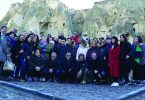
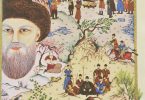
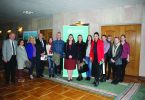
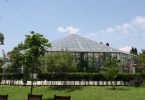
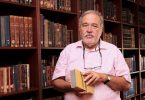
Leave a Comment